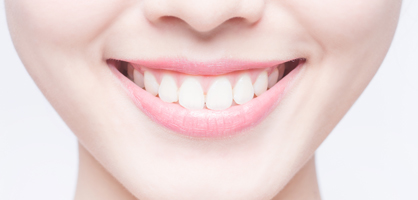Tooth Erosion
Tooth erosion is defined as “the progressive loss of hard tissues by chemical process not involving bacterial action.”
It is an increasingly common problem for many patients of varied age groups in today’s society. There are many different causes and some patients may be exposed to more than one causative factor.
Different age groups appear to have relatively specific origins for their erosive conditions.
In young adolescents the use of acid containing soft drinks is the main problem (including the wrongly perceived as healthy, “diet” varieties). 65% of the total sales of these products are to the young. This age group should be encouraged to substitute more alkaline drinks into their diet. If acidic drinks are consumed, they are best done so through a small bore straw placed towards the rear of the mouth, well behind the teeth and pooling or rinsing of the drink should be avoided. Drinks that have recently been refrigerated are less harmful. It is advisable to stimulate a neutralising saliva flow as soon as possible after consumption, (sugar free gums are suitable) however toothbrushing should be avoided for approximately 15 minutes as immediate brushing can damage the acid softened enamel.
Certain medical conditions often have a detrimental effect on tooth substance through acid regurgitation from the stomach. Most commonly, these are the involuntary examples such as hiatus hernia and gastric ulcers or the voluntary types as in bulimia. In these cases, the acid attack may be effectively neutralised by the prompt use of alkaline preparations such as “Milk of Magnesia”. Many of the medications prescribed for these conditions cause a dry mouth as a side effect thus care must be exercised by the patient not to increase consumption of acid containing fluids to combat this situation.
The excessive consumption of alcohol especially when associated with subsequent vomiting is a well-documented case of erosion particularly with regard to the low pH “alcopops”.
Certain otherwise healthy foods such as citrus fruit and high in roughage vegetarian material are high in acids and tooth wearing ingredients. Beware many low in sugar alternatives which are not low in acid and “everyday” natural acids such as vinegar.
Sensible consumption of potentially damaging products, regular dental attendance and a good oral hygiene regime including the supervised use of a daily fluoride mouth rinse will combat many of this conditions more harmful effects.





